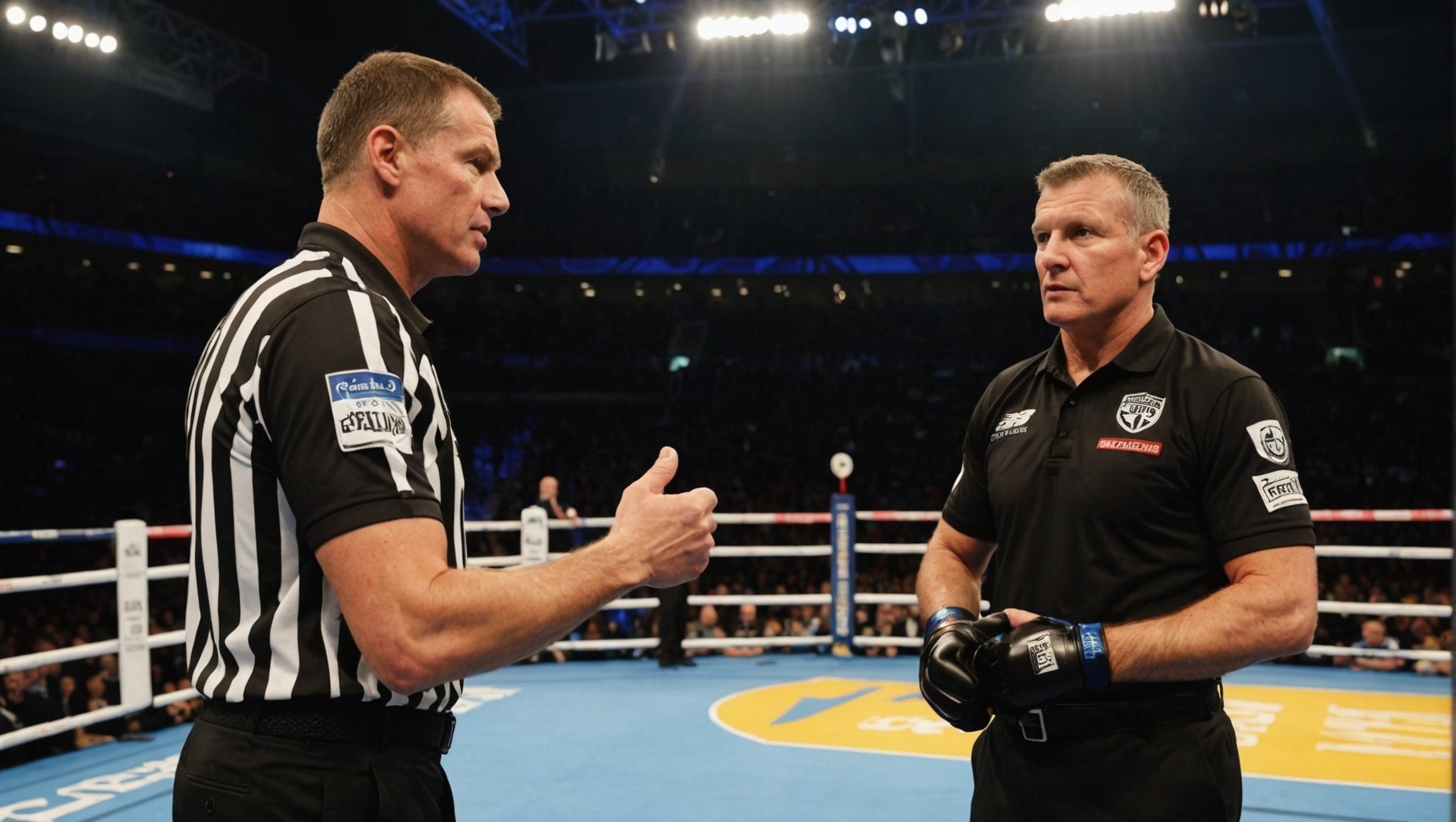Importance of Fairness in Combat Sports Officiating
In the world of combat sports, fairness plays a pivotal role in maintaining the integrity of competitions. The significance of fairness in combat sports cannot be overstated; it ensures that the best talent is recognised and rewarded justly. Impartial officiating greatly influences athlete performance, providing a level playing field where skills and strategies can truly shine. Athletes, knowing that refereeing is unbiased, are more likely to perform at their highest capabilities, fostering a competitive spirit.
Moreover, the public perception of combat sports hinges heavily on the fairness of officiating. Spectators and fans expect regulations to be upheld with consistency and transparency. Instances of perceived unfairness can lead to lost trust and diminishing popularity of the sport. This connection between fair refereeing and combat sports regulations in the UK highlights the importance of stringent oversight and clear ethical standards for referees.
Also read : Empowering UK Female Kickboxers: Customized Training Strategies for Menstrual Cycle Optimization
Combat sports regulations in the UK are designed to align refereeing ethics with an overarching framework that prioritises fairness and impartiality. Establishing standardised procedures for officiating ensures that all parties involved, from athletes to fans, can trust in the integrity of the sport, creating a robust and respected competitive environment.
Ethical Guidelines for Referees in the UK
Referees play a pivotal role in combat sports by ensuring that matches are conducted fairly and safely. In the UK, ethical practices for referees are crucial to maintain the integrity of the sport. Key ethical principles require referees to remain impartial, make decisions consistently, and prioritise the wellbeing of the athletes.
Also to see : Enhancing Breakfall Techniques: Essential Strategies for UK Judo Coaches to Elevate Athlete Performance
Referee integrity is central to ethical officiating. A case that underscores this involves a referee who was found biased during a high-stakes boxing match, favouring one athlete. This breach of ethics led to the match being overturned and the referee being suspended. Such incidents highlight the importance of integrity and transparency, not just for fair outcomes but for the credibility of the sport itself.
To uphold ethical standards, referees must undergo rigorous training and continuously update their knowledge of combat sports ethics. They are often reminded that any deviation from these ethical practices can lead to suspension, fines, and damage to their professional reputation.
Maintaining an unwavering commitment to these ethical principles ensures the sport remains fair and protects both the athletes and the referees from unnecessary scrutiny and controversy.
Training and Development for Combat Sports Referees
In combat sports officiating, referee training is crucial to ensure fair and safe matches. Referees must be thoroughly prepared, which is where structured training programs come into play.
Mandatory Training Programs
Referee certification programs in the UK offer a comprehensive approach to training. These programs are often mandated by governing sports bodies, such as British Wrestling or Boxing England, to ensure standardised education. Courses cover rules, safety protocols, and conflict resolution. Continuous education is stressed; referees must frequently update their skills to adapt to evolving standards and techniques.
In-Field Training Techniques
Hands-on experience is vital for effective combat sports officiating. Mentorship opportunities allow novice referees to learn directly from seasoned officials. Scenario-based training simulates high-pressure environments, enhancing decision-making skills during matches. Video analysis is another powerful tool, enabling referees to review their performance retrospectively and identify areas for improvement.
Resources for Ongoing Development
For continual growth, referees can access a wealth of recommended literature and online platforms. Networking with fellow officials provides a community of shared learning essential for skill enhancement. The UK offers workshops and seminars that present the latest trends in officiating, boosting both competence and confidence in refereeing skills.
Challenges Faced by Combat Sports Referees
Combat sports referees encounter various refereeing challenges that test their ability to maintain control and fairness. One primary dilemma is the need to make quick decisions during matches, often under considerable pressure. Ensuring player safety while also respecting the flow of the game creates a potential conflict. Recognising illegal actions or fouls in fast-paced bouts can demand exceptional awareness and foresight.
Moreover, officiating issues often stem from the unpredictability of combat sports, where unexpected moves or injuries can escalate quickly. Referees must manage stress while keeping a neutral stance. Techniques such as mental training and scenario planning can aid in decision-making under pressure. Anticipating different fight outcomes and practising various scenarios can help referees respond more swiftly and accurately when high-pressure situations arise.
Feedback and self-reflection are indispensable for addressing officiating dilemmas and improving performance. Post-match analysis, whether through video reviews or discussions with peers, enables referees to evaluate their decisions and make adjustments. By reflecting on past performances, they can develop strategies to enhance their officiating skills in future matches, ultimately leading to fairer and more effective refereeing practices.
Ensuring Impartiality in Refereeing Decisions
Referees play a pivotal role in safeguarding the fairness and integrity of sports, making impartiality in refereeing crucial. To foster objective officiating, several methods are employed to counteract personal biases in decision-making. Regular training is conducted to educate referees about potential biases, helping them recognize and avoid these pitfalls during matches. Training sessions often incorporate video analysis to illustrate how biases can unintentionally influence decisions, thus aiming to cultivate more objective officiating practices.
External factors, like crowd pressure and team reputation, can affect referee impartiality. Research suggests that loud environments may sway decisions unintentionally. To combat this, technology such as video assistant referees (VAR) is increasingly used, providing a second look at crucial decisions free from external pressure.
Adopting best practices is essential for objective and fair assessment. This includes fostering transparency in decision-making processes and encouraging open communication among officiating teams. It is also beneficial to have referees rotate in different leagues or levels, which minimizes prolonged exposure to specific teams and reduces the risk of developing biases. Ultimately, these strategies aim to uphold the sanctity of sports competitions by ensuring unbiased, fair play.
Insights from Experienced Referees and Governing Bodies
For those intrigued by the complex world of combat sports, understanding insights from refereeing professionals is invaluable. Experience forms the backbone of any seasoned referee, as interviews with veteran referees often reveal.
Interviews with Veteran Referees
Experienced referees often share fascinating anecdotes, typically discussing challenging matches and the decisions they had to make under pressure. These stories underscore the importance of split-second judgment calls in the heat of competition. Key takeaways frequently include themes of intuition, fairness in judgment, and maintaining composure. Moreover, these referees impart wisdom to new referees, emphasising the significance of continuous learning and adaptability.
Perspectives from Governing Bodies
Governing bodies in combat sports play a crucial role in standardizing refereeing practices. They develop initiatives to promote fairness, ensuring a level playing field for all participants. These organizations not only set the rules but also provide collaboration opportunities between referees and governing entities. This collaboration ensures a robust framework for referees to operate within, allowing them to make well-informed decisions. Aligning with such bodies often leads to greater consistency and respect in refereeing across various sports platforms.
Visual Aids and Example Scenarios
Visual aids play a crucial role in understanding the intricacies of referee decision making during matches. When used effectively, they simplify complex officiating scenarios and make them more accessible, particularly in training sessions. For instance, slow-motion replays and digital simulations allow both referees and audiences to scrutinize decisions, ensuring clarity and transparency.
Consider notable matches where referee decisions were critical. Visual aids help in revisiting these scenarios, illustrating how specific calls were made. Such tools can dissect the dynamics of decisions and offer insights into the challenges faced during high-pressure situations. An example might include the nuanced interpretation of offside rules or the identification of foul play.
Incorporating visual aids in training enhances referees’ ability to make informed decisions. These tools can serve as interactive learning resources, offering new referees an opportunity to practice decision making through example scenarios drawn from real matches. Through a combination of theoretical knowledge and practical application, officials become better equipped to handle on-field challenges efficiently and confidently. Ultimately, this further develops their skills, ensuring a higher standard of officiating in competitive play.











